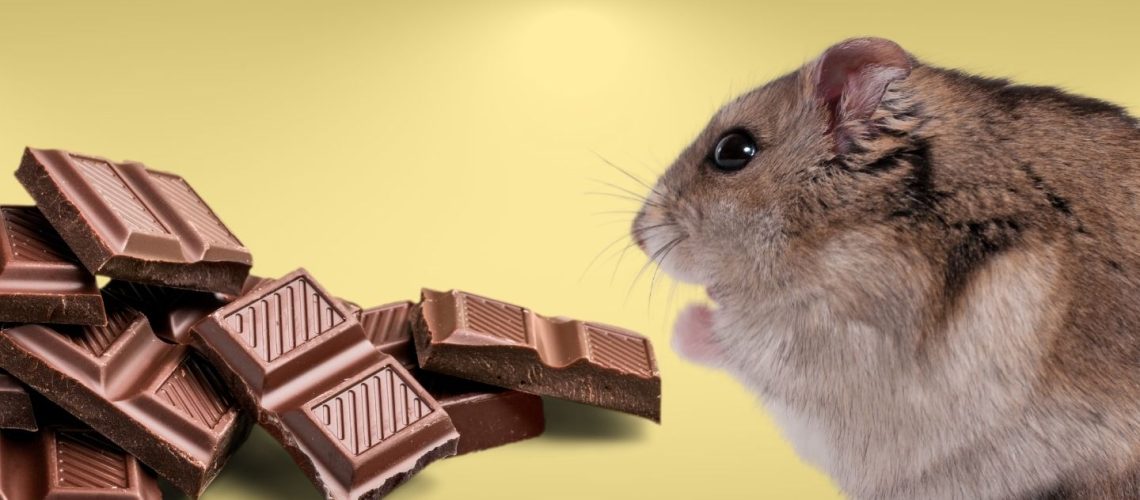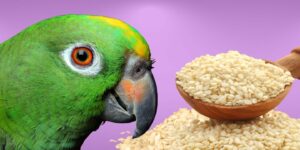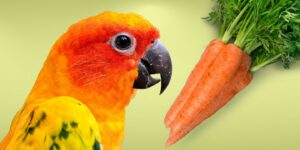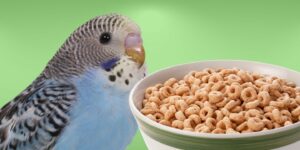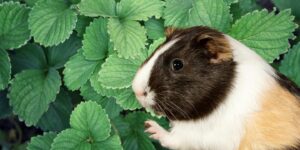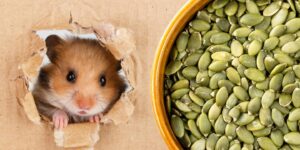The answer is no, hamsters should not eat chocolate. Chocolate contains theobromine, which is toxic to hamsters and can be fatal if they consume it. Even small amounts of chocolate can cause serious health problems for hamsters, such as rapid heart rate, tremors, and seizures. People often wonder if hamsters can eat chocolate due to common misconceptions about their diets.
Theobromine: The Toxic Compound in Chocolate
What is theobromine and where is it found?
Theobromine is a naturally occurring compound found in cacao plants, which are used to make chocolate. It is similar in structure to caffeine and has a mild stimulant effect on the human body. However, the same compound can be highly toxic for small animals like hamsters.
How theobromine affects hamsters
Hamsters have a much faster metabolism rate than humans, which means that they process chemicals like theobromine quickly. High levels of theobromine in a hamster's system can cause severe health issues, including heart problems, tremors, and seizures.
Theobromine poisoning symptoms in hamsters
Symptoms of theobromine poisoning in hamsters may include:
- Rapid heart rate
- Increased blood pressure
- Restlessness
- Tremors and seizures
- In severe cases, even death
Other Harmful Ingredients in Chocolate
Caffeine and its effects on hamsters
Chocolate also contains caffeine, another stimulant that can be harmful to hamsters. Caffeine can cause heart palpitations, hyperactivity, and may interact negatively with the hamster's nervous system.
Sugar and its impact on hamster health
Chocolate can be high in sugar, which can contribute to weight gain and dental issues in hamsters. A healthy hamster diet should be low in sugar to prevent potential health problems.
Other additives that may be harmful to hamsters
Some chocolate products may also contain additives like artificial sweeteners, preservatives, or dyes that could be harmful to hamsters.
Safe Treats and Snacks for Hamsters
Recommended fruits and vegetables for hamsters
Instead of chocolate, provide your hamster with healthy treats like the following fruits and vegetables:
- Apple (avoid the seeds)
- Carrots
- Broccoli
- Cucumber
- Spinach
Seeds and nuts that are safe for hamsters
Hamsters can also enjoy limited amounts of seeds and nuts as treats, such as:
- Pumpkin seeds
- Sunflower seeds
- Flax seeds
- Almonds (unsalted and unflavored)
Commercially available hamster treats
Consult your veterinarian for recommendations on commercially available hamster treats that are safe and healthy for your pet.
Preventing Accidental Chocolate Consumption
Properly storing chocolate and other harmful foods
To prevent accidental ingestion, store chocolate and other harmful foods in a secure location, away from your hamster's reach.
Monitoring children and their interactions with hamsters
Supervise children when they are interacting with hamsters and educate them about the appropriate foods and treats to give their furry friends.
Signs that your hamster may have ingested chocolate
Monitor your hamster for any unusual behavior or symptoms, as these may indicate chocolate ingestion.
What to Do If Your Hamster Eats Chocolate
Immediate steps to take after chocolate ingestion
If you suspect your hamster has eaten chocolate, remove any remaining chocolate from their environment, and observe them closely for signs of theobromine poisoning.
When to contact a veterinarian
Contact your veterinarian immediately if you suspect your hamster has consumed chocolate, even if they are not showing symptoms. Early intervention can be crucial in preventing severe health issues or even death.
Treatment options for chocolate poisoning in hamsters
Your veterinarian will advise on the best course of action for treating chocolate poisoning in your hamster. This may include supportive care and medications to counteract the effects of theobromine.
Maintaining a Healthy Hamster Diet
Importance of a balanced diet for hamsters
A balanced diet is essential for hamsters to maintain their overall health, well-being, and longevity. Ensure their diet includes a variety of fresh fruits, vegetables, and high-quality hamster food.
Foods to avoid in a hamster's diet
Avoid giving your hamster sugary treats, chocolate, candy, or sweets, as these can have a negative impact on their health.
Monitoring your hamster's weight and overall health
Regularly monitoring your hamster's weight and overall health can help detect any potential diet-related issues early on.
Frequently Asked Questions About Hamster Diets
Can hamsters eat white chocolate?
No, hamsters should not eat white chocolate. Although it contains lower levels of theobromine, it is still not safe for hamsters and can cause health problems.
Are there any safe chocolate alternatives for hamsters?
There are no safe chocolate alternatives for hamsters. Stick to healthy treats like fruits, vegetables, seeds, and nuts instead.
How much fruit and vegetables should a hamster eat daily?
Consult with your veterinarian for guidance on the appropriate portion size and frequency of fruit and vegetable intake for your specific hamster.
Conclusion
In conclusion, hamsters should not eat chocolate. Chocolate contains theobromine, which is toxic to hamsters and can be fatal if consumed. It is important to provide your hamster with a balanced diet and avoid giving them sugary treats. Always consult with a veterinarian if you have any questions or concerns about your hamster's diet. Encourage responsible pet ownership by educating others on the dangers of chocolate for hamsters and the importance of proper hamster nutrition and care.

